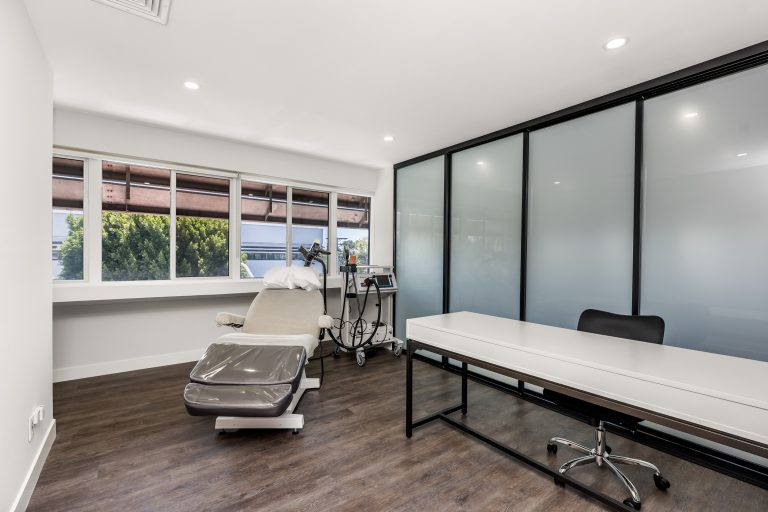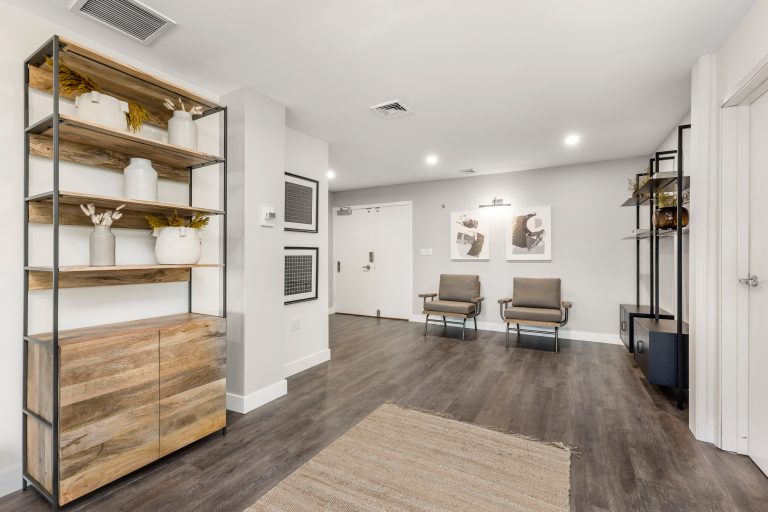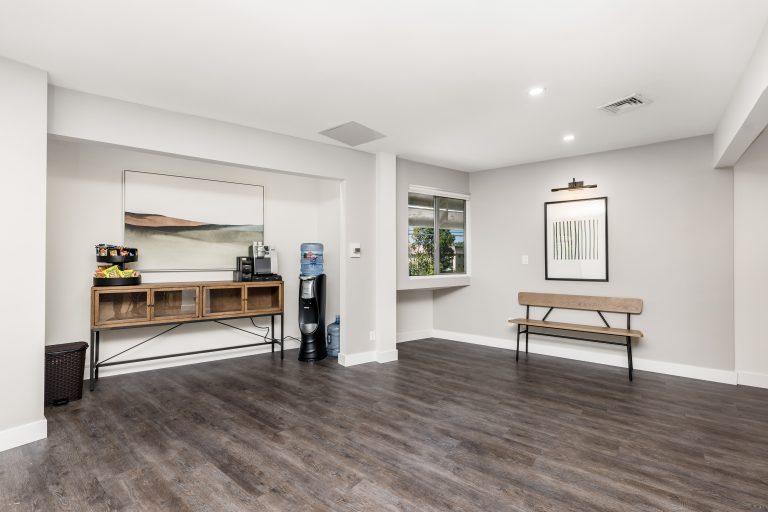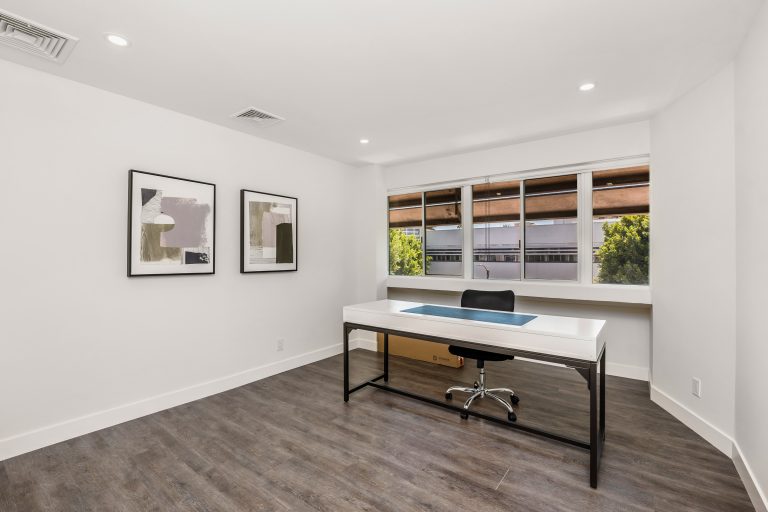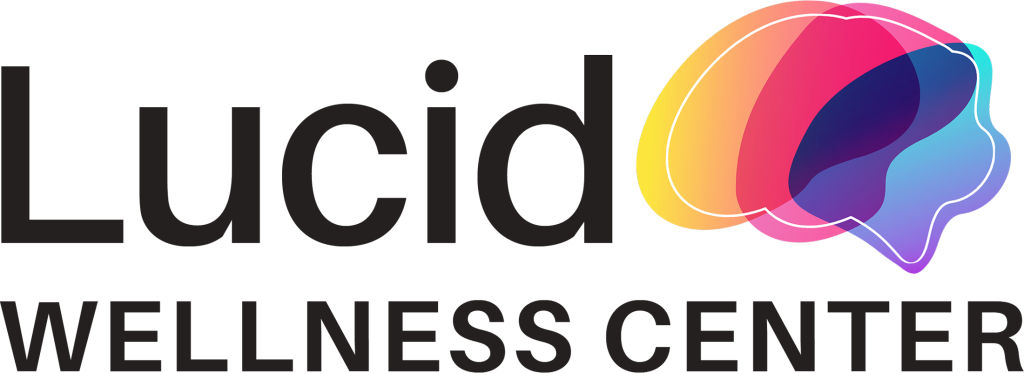TMS Therapy in Los Angeles
We provide depression treatment options for those seeking an alternative to antidepressant medications at our clinic in Los Angeles, CA.
Same day and next day appointments available.
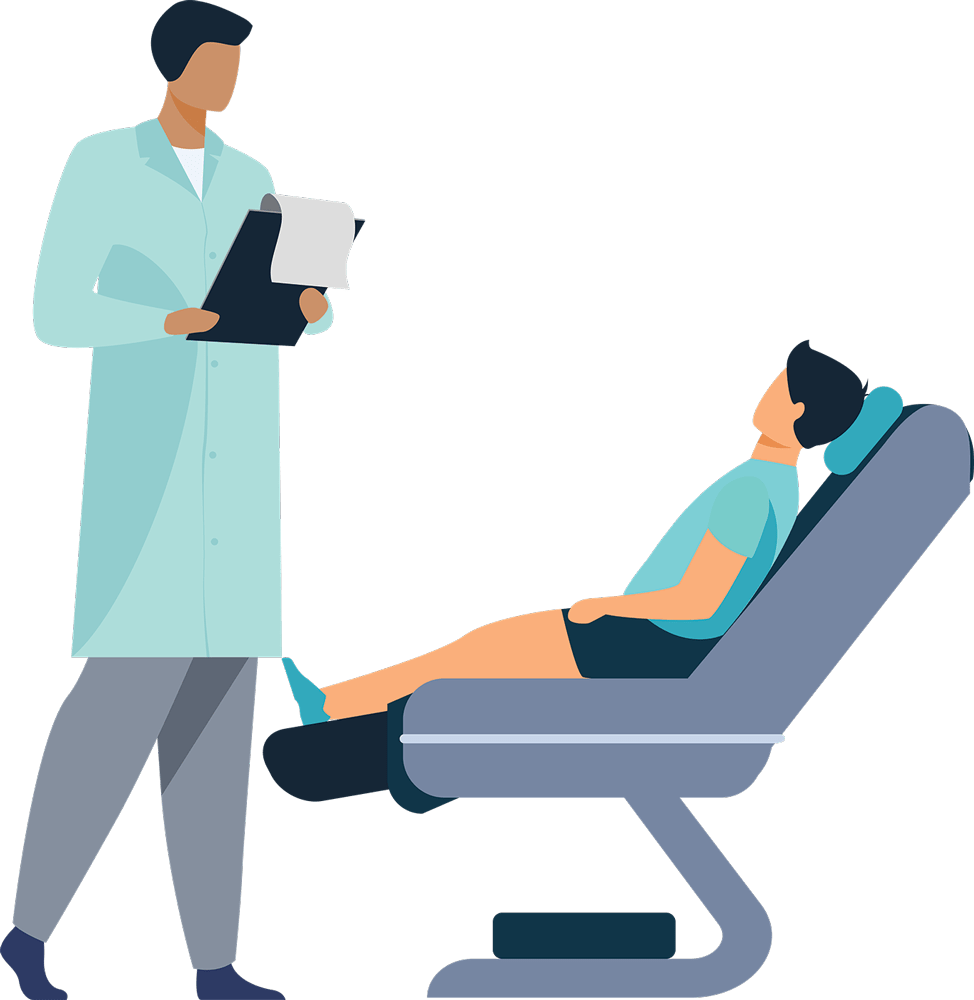
If antidepressants or other medications haven't effectively treated your mental health symptoms, you are not alone.
You have more options for treating your depression, anxiety, PTSD, and other mental health conditions than you realize. Studies have shown that, among those who attempted to treat their depression with medication unsuccessfully, TMS therapy is more effective than trying another form of antidepressant.
Watch our video to learn more about TMS therapy, an FDA-approved, groundbreaking treatment for depression.

TMS therapy is mainly used to treat depression, but it also helps with a wide range of other aliments.
According to Harvard Health, treating depression with TMS therapy has shown success rates of 50-60%





















How TMS Therapy Works
Call us at (323) 792-2071 to schedule an appointment or fill out the new patient form here. Same day and next day appointments are available.
Come to our Los Angeles TMS therapy clinic, meet with the doctor, and receive a treatment designed to fit your mental health needs.
We will continue to work with you throughout your treatment plan to help you achieve long lasting success.
Feel the difference in mental health care at Lucid Wellness Center in Los Angeles, CA
Our dedicated staff and medical director, Eric Chaghouri, MD, are all experts in their fields. With our complete knowledge of your TMS therapy, you can be sure that we have taken care to provide you with a program that has your complete well-being – including your physical and mental health – as our number one priority. We are here for you every step of the way.
- Modern, clean facility at our convenient Los Angeles location
- State of the art TMS technology
- The best medication management for all patients
- Providing ongoing care and support before, during, and after treatment


About Our Medical Professionals
Our southern California TMS Center is based in Los Angeles and provides Transcranial Magnetic Stimulation treatment for depression and other mental health conditions. This revolutionary FDA-approved treatment has helped up to 60% of clients feel better again.
Our staff is here to assist you in overcoming depression and answer any questions you may have, backed by the expertise of our Medical Director, Dr. Eric Chaghouri MD.
Best Alternative to Medication for Mental Health Treatment
Depression is the most common cause of disability among Americans ages 15 to 44. While there are numerous successful treatments for depression, common first-line approaches such as antidepressants and psychotherapy don’t help everyone. Of those with depression, about two-thirds don’t obtain adequate relief from the first antidepressant they try. After two months of treatment, at least some symptoms will remain, and the next medicine will be even less likely to help than the one before.
Safe Therapy Methods
Highly Qualified Professionals
Customized Treatment Plans

Frequently Asked Questions About TMS Therapy
Anyone who is suffering from depression, anxiety, or another mental health disorder may benefit from TMS therapy. Of course, as a relatively recent treatment modality, certain conditions are better researched than others when it comes to TMS. Depression, for instance, is the most well-studied condition – and there is a large body of research supporting TMS’ efficacy in depression treatment. The list of conditions TMS treats is ever-growing, though. It is important to recognize, too, that TMS has performance benefits even for people who are mentally healthy.
TMS is most frequently recommended to individuals who have tried to treat their condition with conventional methods and had little success. Medications and talk therapy do not always reduce the symptoms of depression or other mental health conditions. TMS therapy is extremely effective at mitigating the impact of treatment-resistant depression. Ultimately, however, the best way to determine if you are a good candidate for TMS is to talk to a mental health clinician. At Lucid, our Los Angeles psychiatrists, clinicians, and staff members can evaluate you to assess your needs and develop an appropriate and effective treatment plan.
Have More Questions?
If you do not see your question listed here and are curious about how TMS treatment can impact your life for the better, reach out to Lucid today. Our staff members can answer any questions or concerns you have and discuss your needs. If you have tried many other treatment approaches and had little success, we understand that you may be feeling hopeless – but TMS therapy exists precisely for cases like yours.
Insurance that Covers TMS Therapy
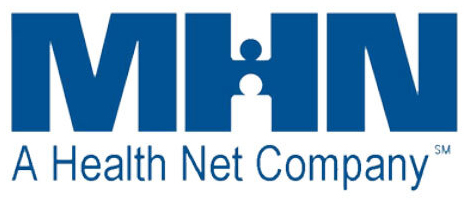





TMS Therapy in Los Angeles
We provide depression treatment options for those seeking an alternative to antidepressant medications at our clinic in Los Angeles, CA.
- Same day and next day appointments available.
TMS therapy is mainly used to treat depression, but it also helps with a wide range of other aliments.
According to Harvard Health, treating depression with TMS therapy has shown success rates of 50-60%

TMS therapy has been used for 40 years as an effective option for mental health treatment.

According to Harvard Health, treating depression with TMS therapy has shown success rates of up to 60%.

Watch our video to learn more about TMS therapy, an FDA-approved, groundbreaking treatment for depression.
If antidepressants or other medications haven't effectively treated your mental health symptoms, you are not alone.
You have more options for treating your depression, anxiety, PTSD, and other mental health conditions than you realize. Studies have shown that, among those who attempted to treat their depression with medication unsuccessfully, TMS therapy is more effective than trying another form of antidepressant.
Feel the difference in mental health care at Lucid Wellness Center in Los Angeles, CA
Our dedicated staff and medical director, Eric Chaghouri, MD, are all experts in their fields. With our complete knowledge of your TMS therapy, you can be sure that we have taken care to provide you with a program that has your complete well-being – including your physical and mental health – as our number one priority. We are here for you every step of the way.

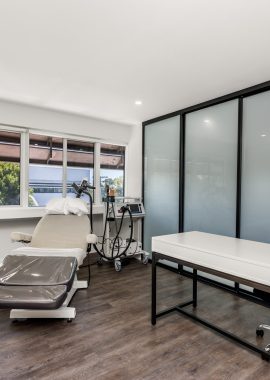


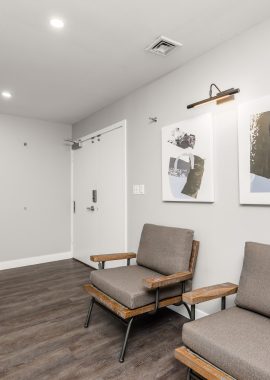
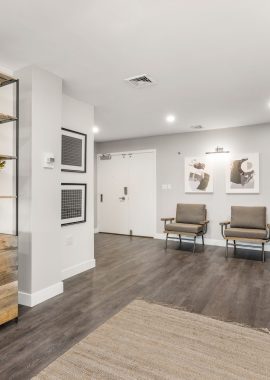


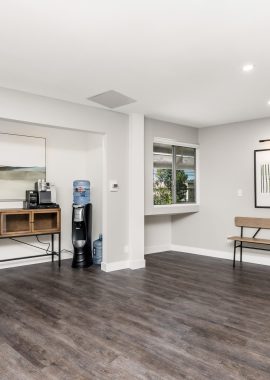


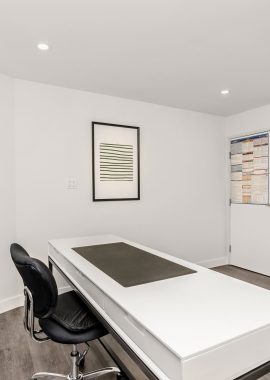

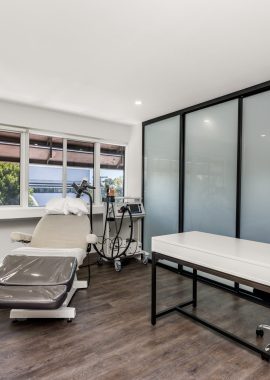
We offer only the very best for your mental health treatment at our clinic, including...
- Modern, clean facility at our convenient Los Angeles location
- State of the art TMS technology
- The best medication management for all patients
- Providing ongoing care and support before, during, and after treatment
How TMS Therapy Works
Your Experience at Lucid Wellness Center

Schedule an Appointment
Call us at (323) 792-2071 to schedule an appointment or fill out the new patient form here. Same day and next day appointments are available.

Receive Treatment
Come to our Los Angeles TMS therapy clinic, meet with the doctor, and receive a treatment designed to fit your mental health needs.

Ongoing Support
We will continue to work with you throughout your treatment plan to help you achieve long lasting success.
About Our Medical Professionals
Our southern California TMS Center is based in Los Angeles and provides Transcranial Magnetic Stimulation treatment for depression and other mental health conditions. This revolutionary FDA-approved treatment has helped up to 60% of clients feel better again.
Our staff is here to assist you in overcoming depression and answer any questions you may have, backed by the expertise of our Medical Director, Dr. Eric Chaghouri MD.

Trust us to be there to help your brain get well again
Best Alternative to Medication for Mental Health Treatment

Safe Therapy
Methods

Highly Qualified Professionals

Customized Treatment Plans

FDA Approved Therapies
Frequently Asked Questions About TMS Therapy
Anyone who is suffering from depression, anxiety, or another mental health disorder may benefit from TMS therapy. Of course, as a relatively recent treatment modality, certain conditions are better researched than others when it comes to TMS. Depression, for instance, is the most well-studied condition – and there is a large body of research supporting TMS’ efficacy in depression treatment. The list of conditions TMS treats is ever-growing, though. It is important to recognize, too, that TMS has performance benefits even for people who are mentally healthy.
TMS is most frequently recommended to individuals who have tried to treat their condition with conventional methods and had little success. Medications and talk therapy do not always reduce the symptoms of depression or other mental health conditions. TMS therapy is extremely effective at mitigating the impact of treatment-resistant depression. Ultimately, however, the best way to determine if you are a good candidate for TMS is to talk to a mental health clinician. At Lucid, our Los Angeles psychiatrists, clinicians, and staff members can evaluate you to assess your needs and develop an appropriate and effective treatment plan.
TMS is a non-invasive, painless, and very safe procedure. Nonetheless, there are a few groups of people who should not engage in this type of treatment. Because TMS involves magnetic pulses, individuals who have implanted medical devices or metals inside of their bodies should not do TMS. Furthermore, people who have significant brain damage or a history of seizures are somewhat more likely to experience side effects during TMS treatment, making them less than ideal candidates.
Yes! Depression is generally best treated using a combination of different methods. While TMS may have many advantages over prescription drugs and talk therapy, that doesn’t mean those methods should be abandoned. Depending on your individual case history and needs, your psychiatrist may recommend taking depression medication while undergoing TMS therapy. Many patients discover that TMS therapy is so effective that they no longer need to be on antidepressants, while others are delighted to learn that TMS actually made their medications more effective. The best way to answer this question is to talk to a psychiatrist at Lucid.
Since TMS is neither a medication nor a surgery, the procedure has very limited side effects, and in many cases it has none at all. The few occasional side effects that clients experience are scalp discomfort, mild headaches, and minor discomfort in the face and jaw. For most people, these side effects are so mild as to be hardly noticeable. They tend to disappear after a few days or weeks. Even clients who do notice these symptoms rarely find them bothersome enough to discontinue treatment.
TMS is a painless procedure. The sensation that clients experience while undergoing a TMS session is generally described as a light and gentle tapping on the scalp. This tapping sensation is caused by the magnetic pulses, not by any actual physical touching of the scalp. Some people also experience some facial or eye twitching during treatment, but this symptom immediately ends when the treatment session does. TMS does not cause pain, but even people who consider the sensations uncomfortable or strange are rarely really bothered, since the nature of this discomfort is very mild.
TMS is generally faster acting than prescription antidepressants or talk therapy. However, the length of time it takes for TMS to help with depression depends on the individual client and their specific case of depression. Most people experience some degree of improvement after a mere two weeks. With continued TMS treatment, these improvements become more and more impactful.
TMS treatment generally only lasts for a few weeks. During this time, however, clients do need to set aside time for regular TMS sessions. Treatment plans vary from person to person, but the vast majority involve going in for TMS sessions approximately 5 days a week. In most cases, this lasts for 6-8 weeks. During this time, however, it is easy for clients to continue with their everyday lives. TMS sessions are extremely short, generally lasting 20 minutes. Clients are not sedated or debilitated by the procedure. Most people read or listen to music during their TMS sessions and then go on with their day.
As an FDA-cleared treatment method, transcranial magnetic stimulation is widely covered by most health insurance companies. Major insurance plans that cover TMS therapy in Los Angeles include Blue Shield, Optum, Tricare, Cigna, MHN/Healthnet, Beacon, and Magellan. TMS is also covered by a wide range of smaller healthcare plans as well. Fortunately, all you need to do to determine your coverage is reach out to us at Lucid. Our team will reach out on your behalf to your healthcare company to get you the best possible coverage for the treatment you need. There’s no need for you to do any paperwork or make any calls.
TMS therapy is a simple and painless outpatient procedure. Clients can relax and do other activities while their brains are gently stimulated by magnetic pulses. Treatment sessions generally last no longer than 20 minutes, after which clients get on with their days. TMS is sometimes confused with ECT, or electroconvulsive therapy, but it is far less invasive. It does not involve planting electrodes on the head or the use of sedating anesthesia. TMS is a painless, non-invasive, and even relaxing procedure that clients can get while on their lunch break. Above all, however, TMS treatment at Lucid in Los Angeles is effective.
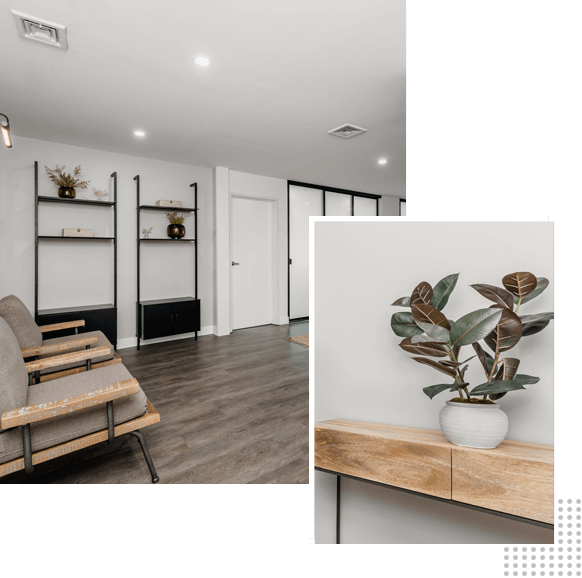
Have More Questions?
If you do not see your question listed here and are curious about how TMS treatment can impact your life for the better, reach out to Lucid today. Our staff members can answer any questions or concerns you have and discuss your needs. If you have tried many other treatment approaches and had little success, we understand that you may be feeling hopeless – but TMS therapy exists precisely for cases like yours.
Insurance that Covers TMS Therapy







